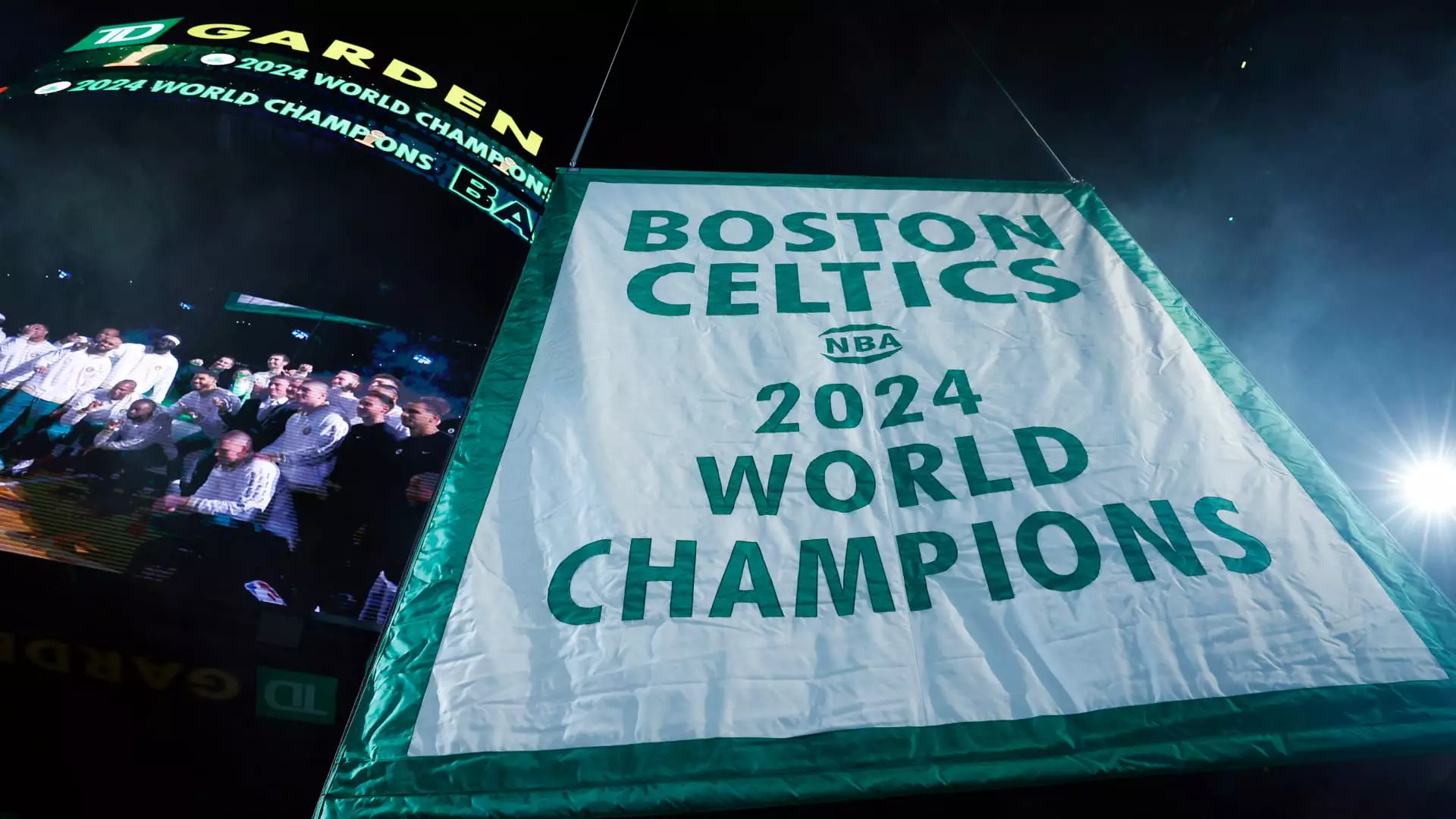The recent announcement regarding the sale of the Boston Celtics for an astonishing $6.1 billion marks a pivotal moment in the landscape of professional sports. This acquisition, spearheaded by private equity leader Bill Chisholm and a consortium that includes Sixth Street, an investment firm contributing over $1 billion, underscores not just a financial transaction but a dramatic shift in ownership paradigms within the National Basketball Association (NBA). It begs the question: are we witnessing a renaissance of sports ownership that prioritizes profit over passion, or is this investment the rightful evolution of a franchise that already holds a sacred place in Boston’s culture?
In a league where public sentiment and franchise loyalty are nearly sacred, the entry of heavy-hitting financial entities seems to underline a more sterile atmosphere, where the heartbeat of sports fandom can be overshadowed by boardroom negotiations. While many celebrate the astronomical valuation as a symbol of growth, there is an undeniable unease about the influence of external financial players meddling in the pulse of beloved teams. The NFL’s recent permitting of private equity stakes further accelerates this trend, which may pave the way for a homogenized ownership landscape devoid of the familiar familial ties that once grounded teams within their communities.
Chisholm’s Connection to Boston
However, the emotional ties that Chisholm professes to have with the franchise offer a glimmer of hope that elevates this sale above mere financial competitiveness. This lifelong Celtics fan, who has roots on the North Shore, declares a profound commitment to the people of Boston and their cherished institution. His assertion that he recognizes “the role the team plays in the community” proffers a comforting perspective that contrasts starkly with the otherwise corporate takeover narrative that tends to dominate such situations.
Yet, one has to consider the limitations of passion in a landscape occupied by profit-driven motives. Chisholm represents a new breed of owners, one that might potentially combat the isolation felt by die-hard fans in an age where loyalty can crumble in the face of fiscal calculations. Can he balance the duality of being both a committed fan and a shrewd businessman? Only time will tell if his actions as an owner lean more towards the heart or the balance sheet.
A New Standard in Valuation
The staggering valuation of the Celtics not only sets records but poses daunting implications for the future of sports investments. Surpassing the previous record held by the Washington Commanders at $6.05 billion, the Celtics’ sale signals a new peak in a continuously inflating bubble far removed from the average fan’s economic realities. This reflects a broader trend of inflated sports valuations propelled by lucrative media deals, such as the $76 billion agreement signed with significant broadcasters that more than doubles the annual value of prior contracts.
While this financial backdrop can create an optimistic view of potential growth and sustainability, it also raises alarms. The escalating costs associated with sports franchises may alienate grassroots fans—those who feel priced out not just from team ownership but from the very essence of the waving banners and thrumming cheers at home games. The rhetoric of protection and responsible stewardship of a franchise cherished by its city is essential, yet it struggles against the stark financial realities that govern modern sports.
Looking Ahead: A Challenge to Tradition
As the Celtics’ new ownership seeks to maintain the franchise’s storied tradition, they must grapple with the realities of modern sports. Chisholm’s responsibility to uphold the Celtics legacy while also steering the team towards profitability and modern connectivity is Herculean at best. Up against the backdrop of the franchise’s 18 championships and its current standing as a contender in the Eastern Conference, the team faces the challenge of navigating the delicate balance between tradition and contemporary expectations.
With Wyc Grousbeck, the current team governor, remaining through the 2027-2028 season, continuity may offer some solace in turbulent financial times. Still, the looming question remains: how will new strategies to amplify revenue impact the essence of what it means to root for the Celtics? The intersection of big money and beloved teams could potentially commercialize fandom into an experience where emotional engagement fades into marketing strategies, focus groups, and bottom-line analyses.
The Boston Celtics are not just a franchise; they are an inseparable piece of Boston’s rich cultural tapestry. As ownership transitions, it compels us to confront what we value as fans: a genuine connection or financial prowess. In chasing the exhilarating highs of ownership and valuation, will we forget that at the heart of every franchise lies the essence of the fans who dare to dream? That remains the eternal challenge in this new sports landscape.

